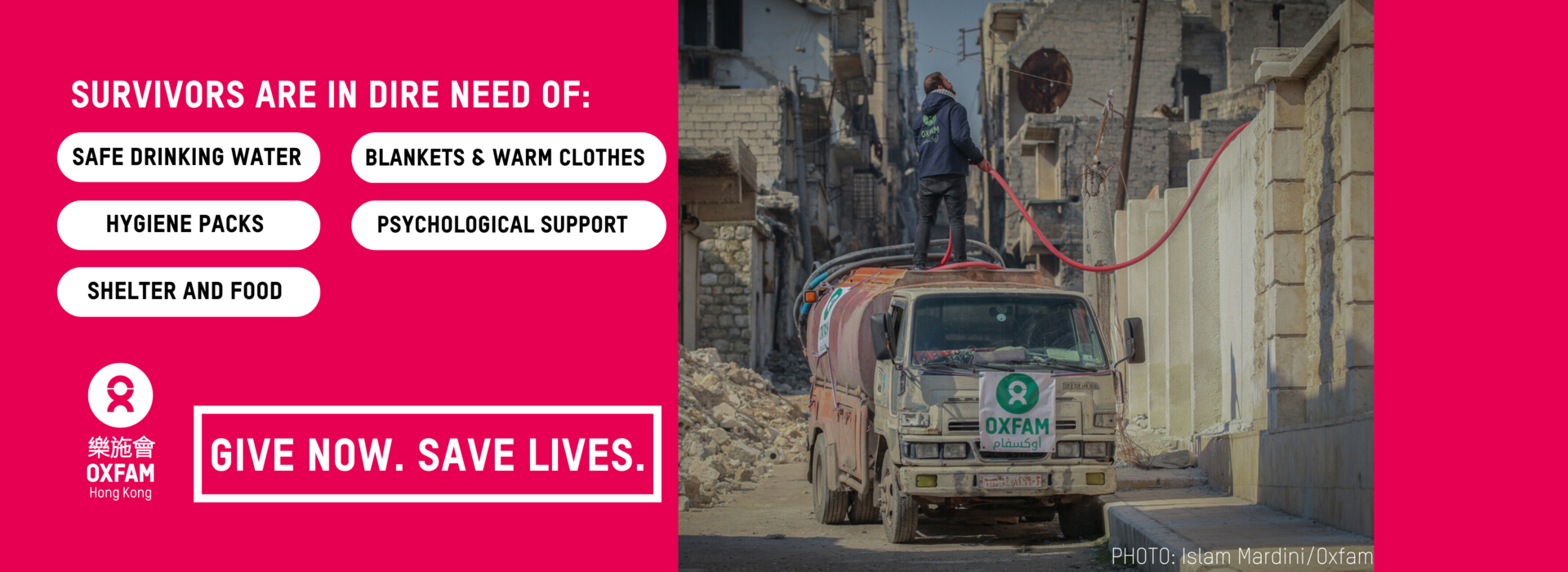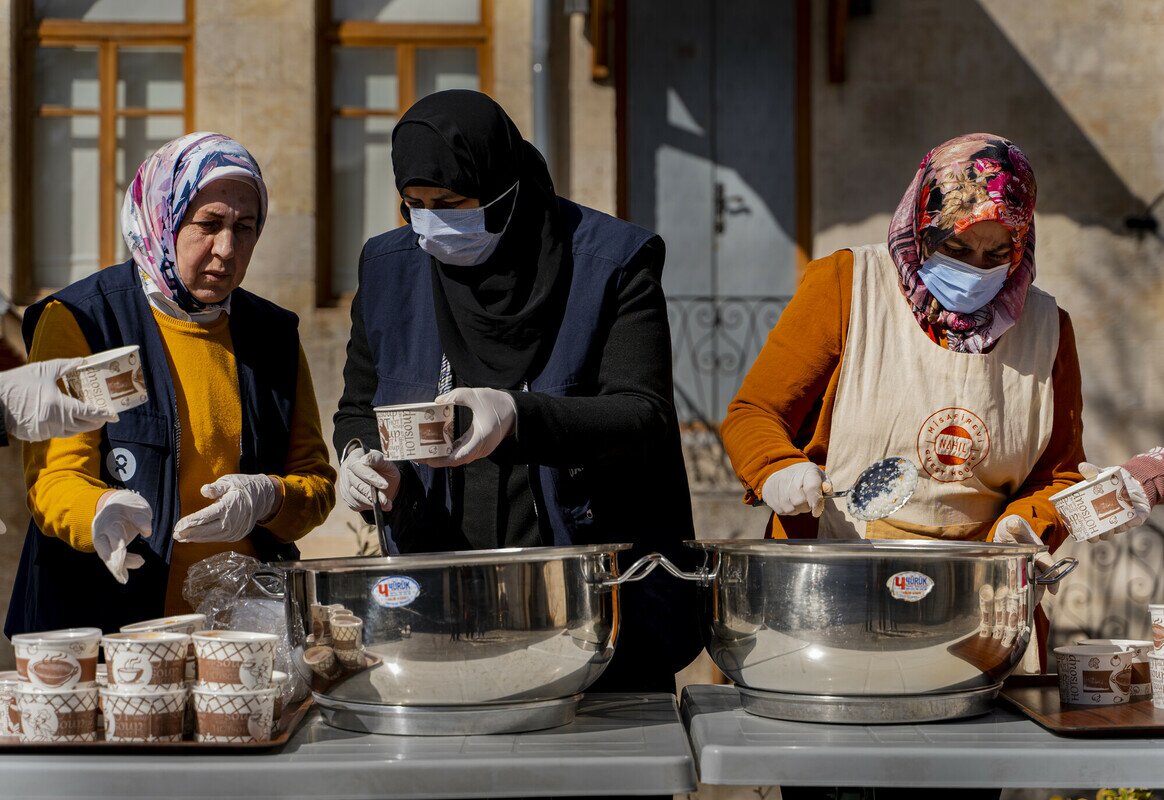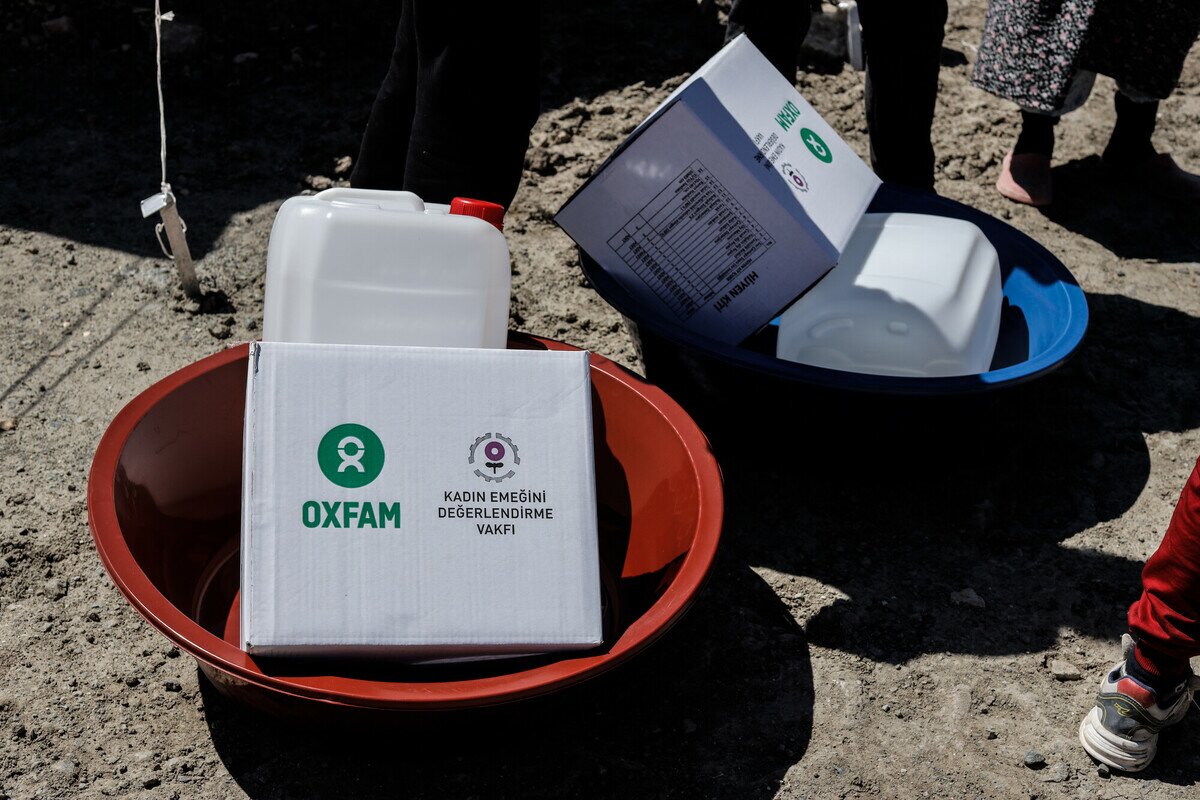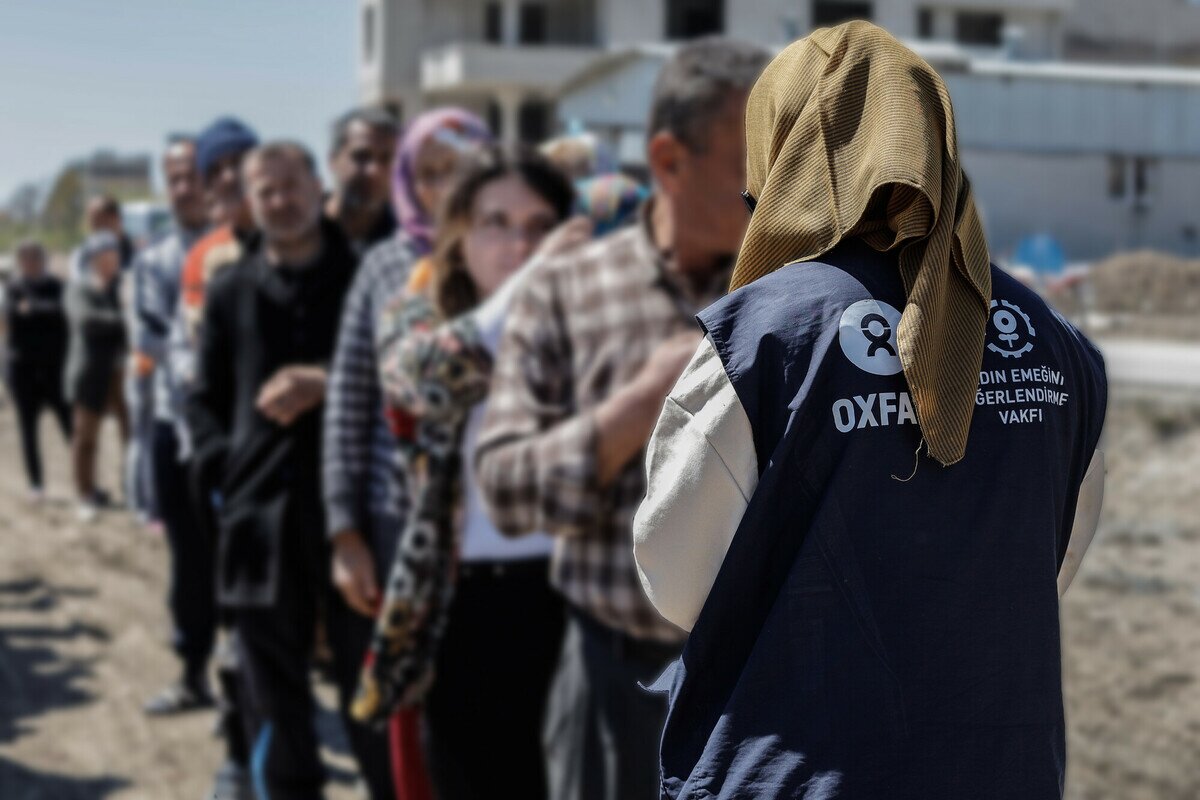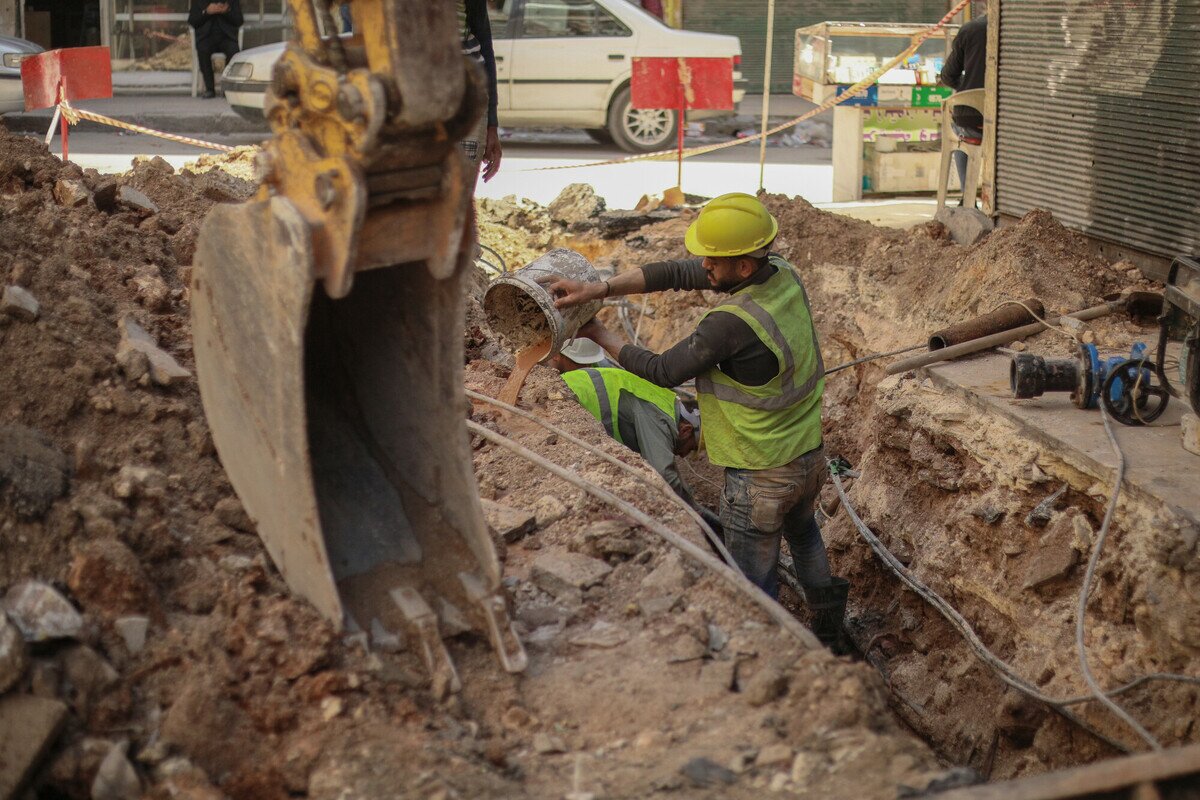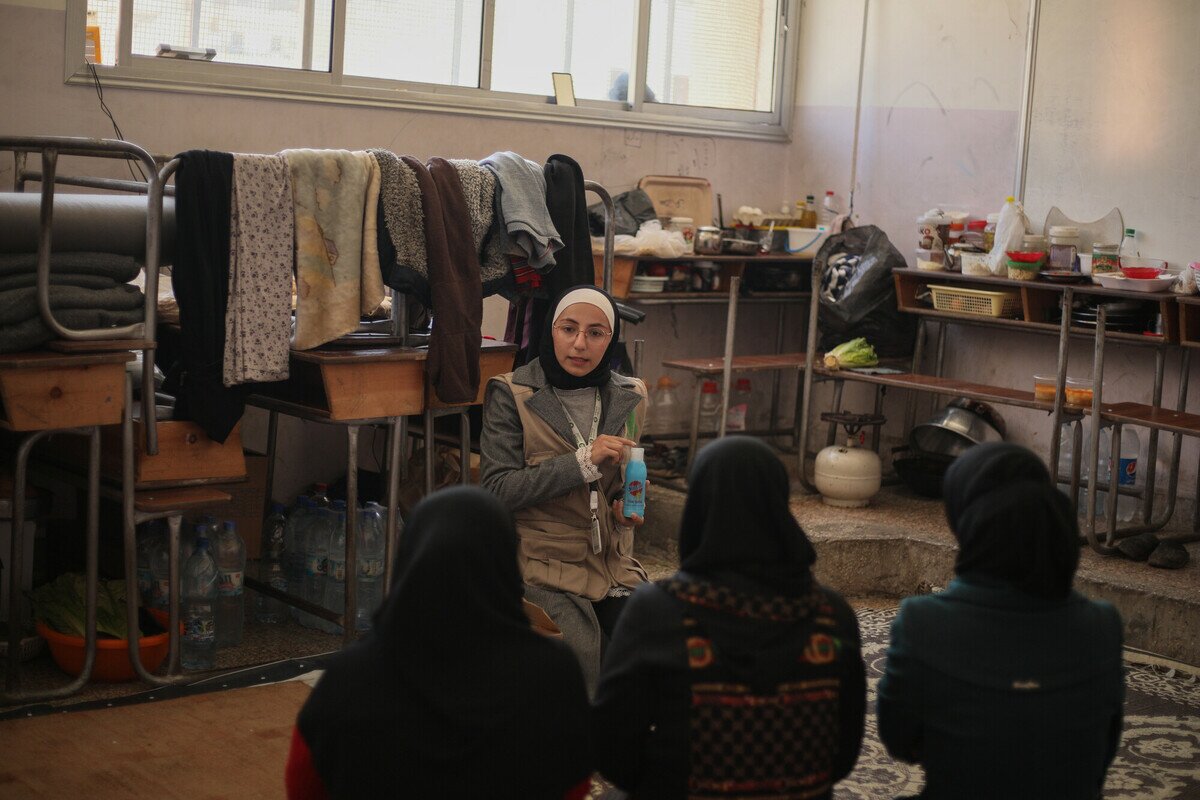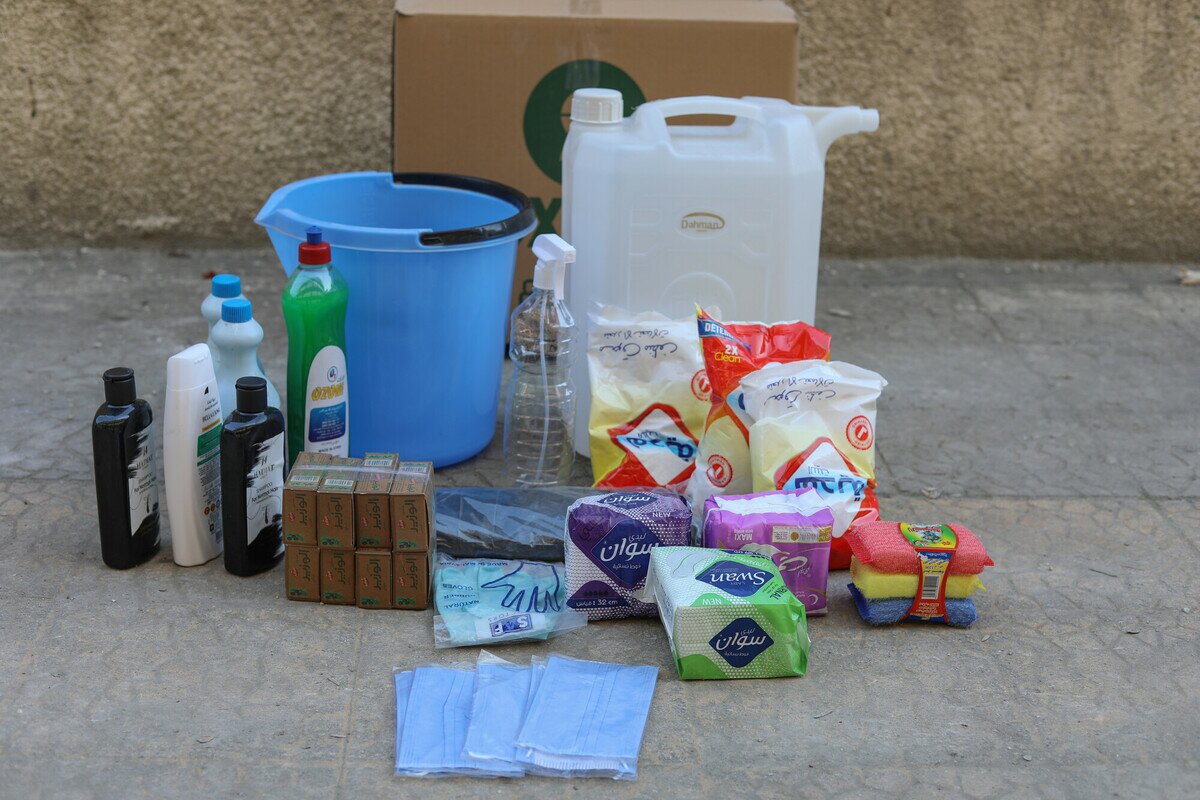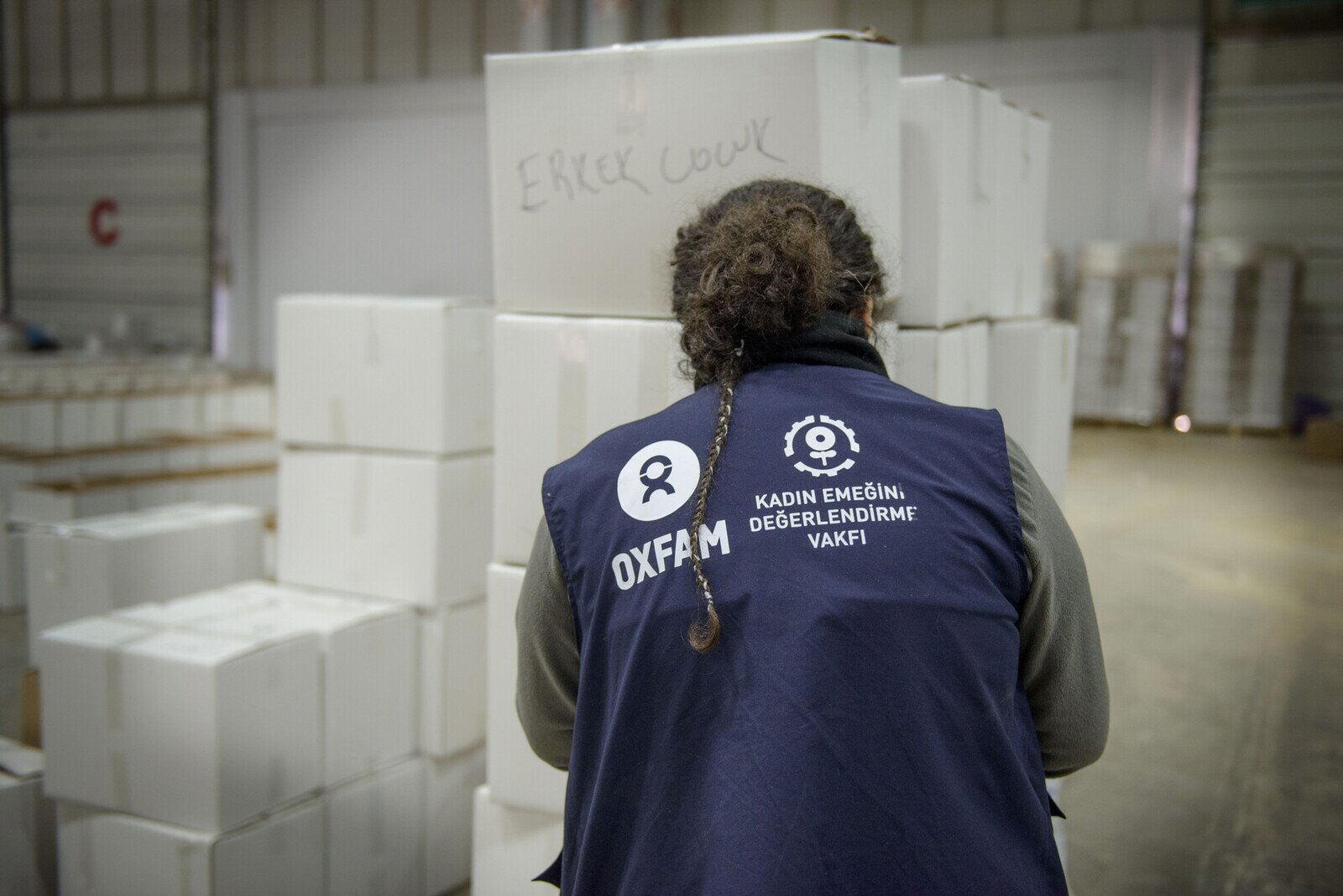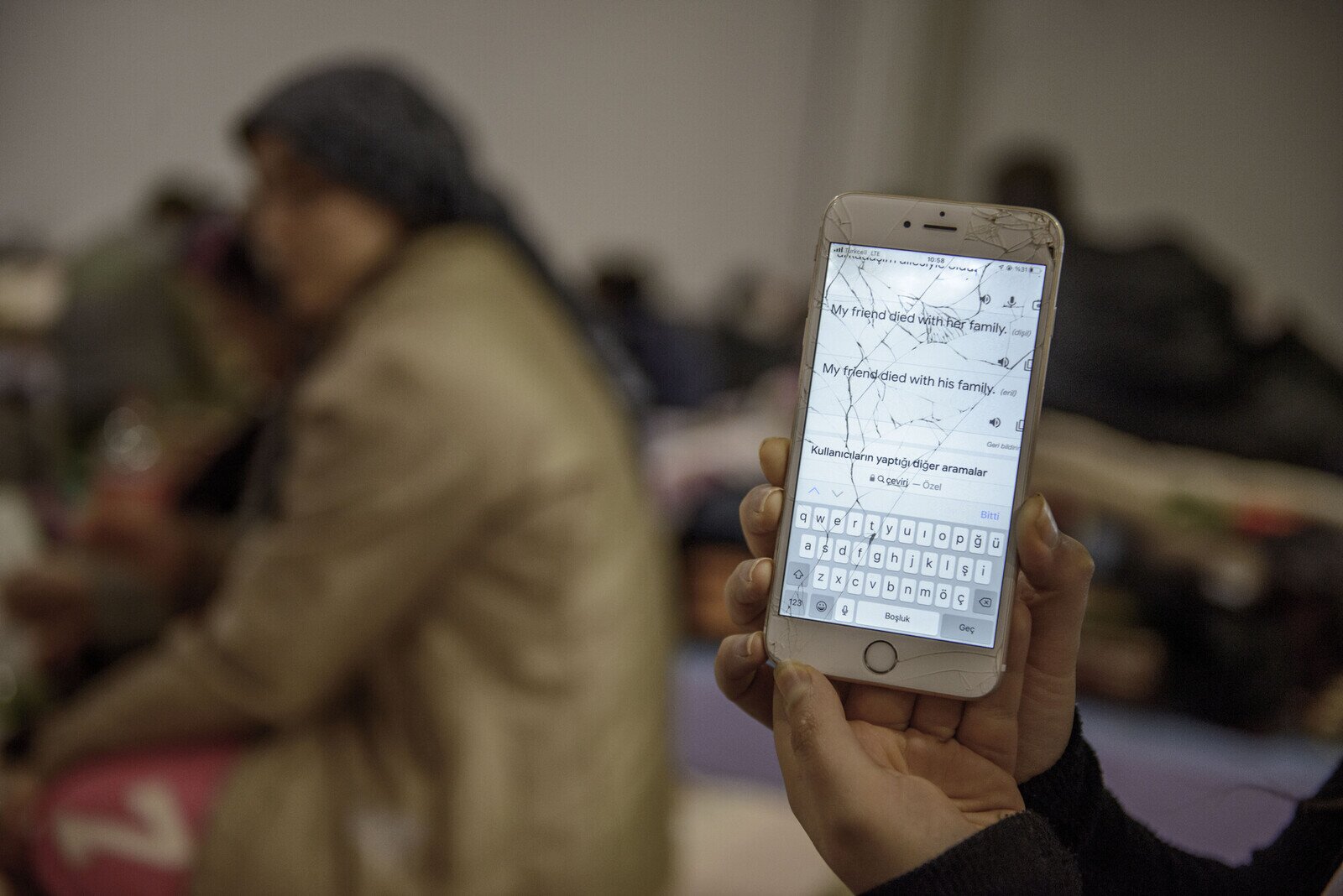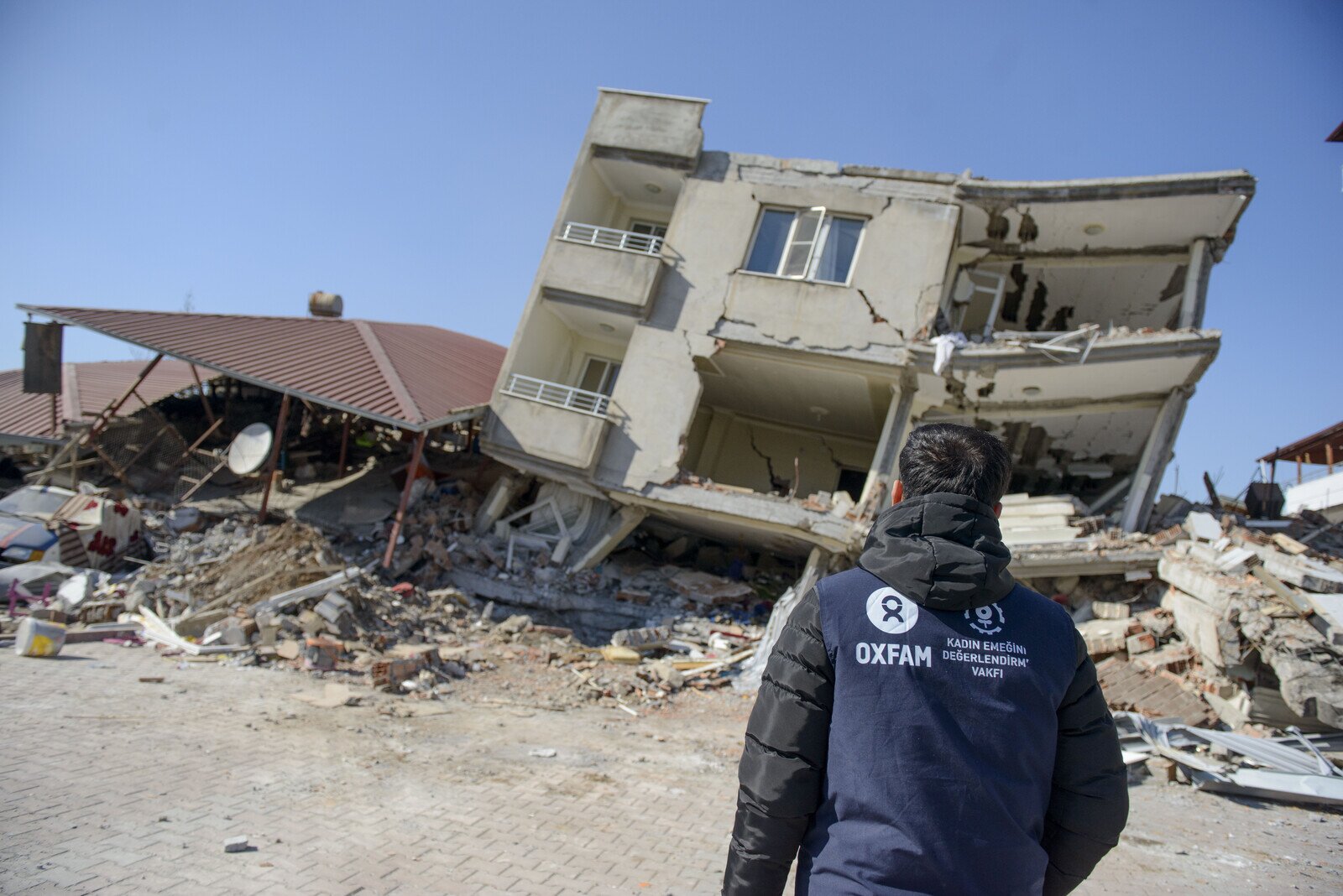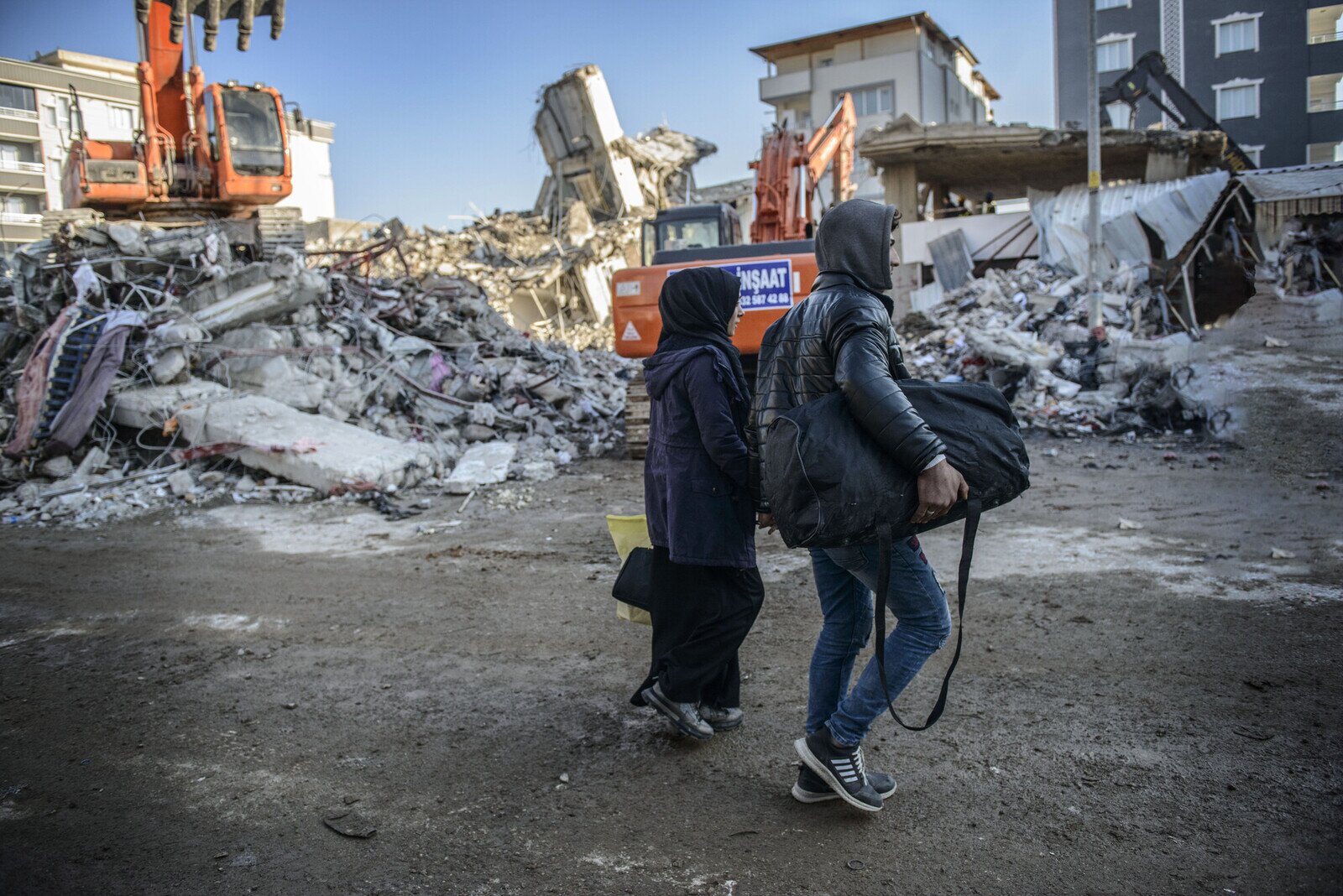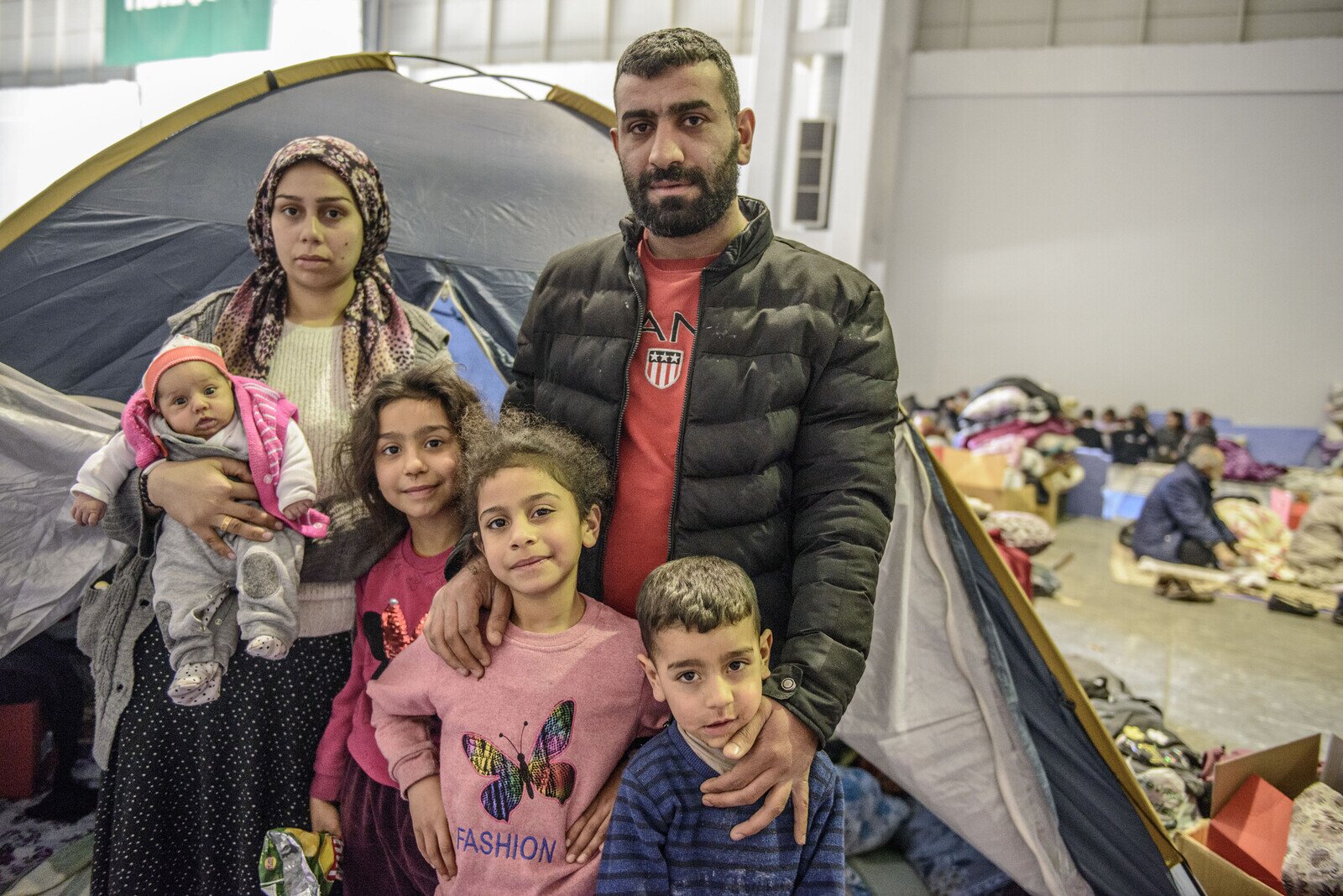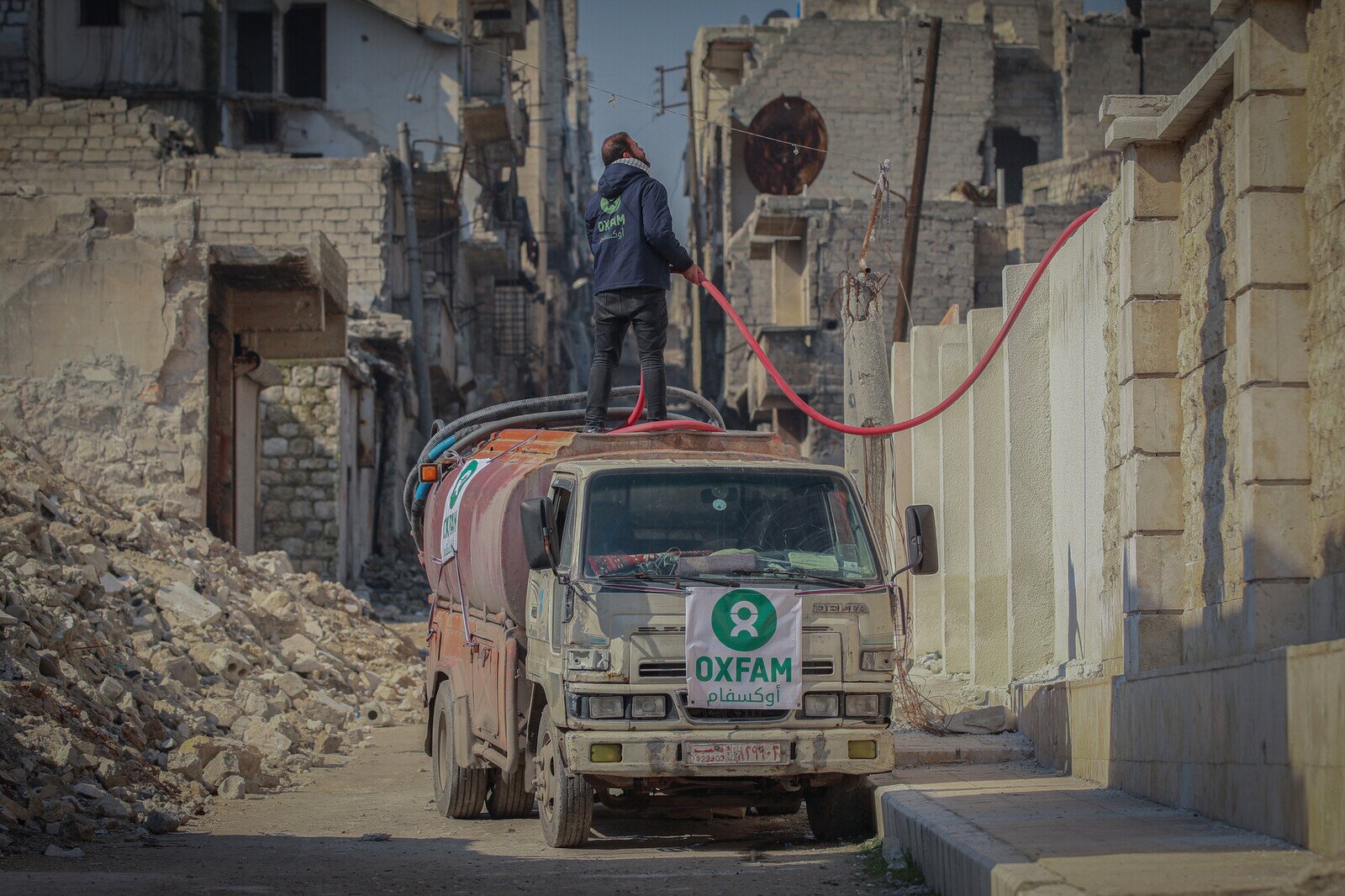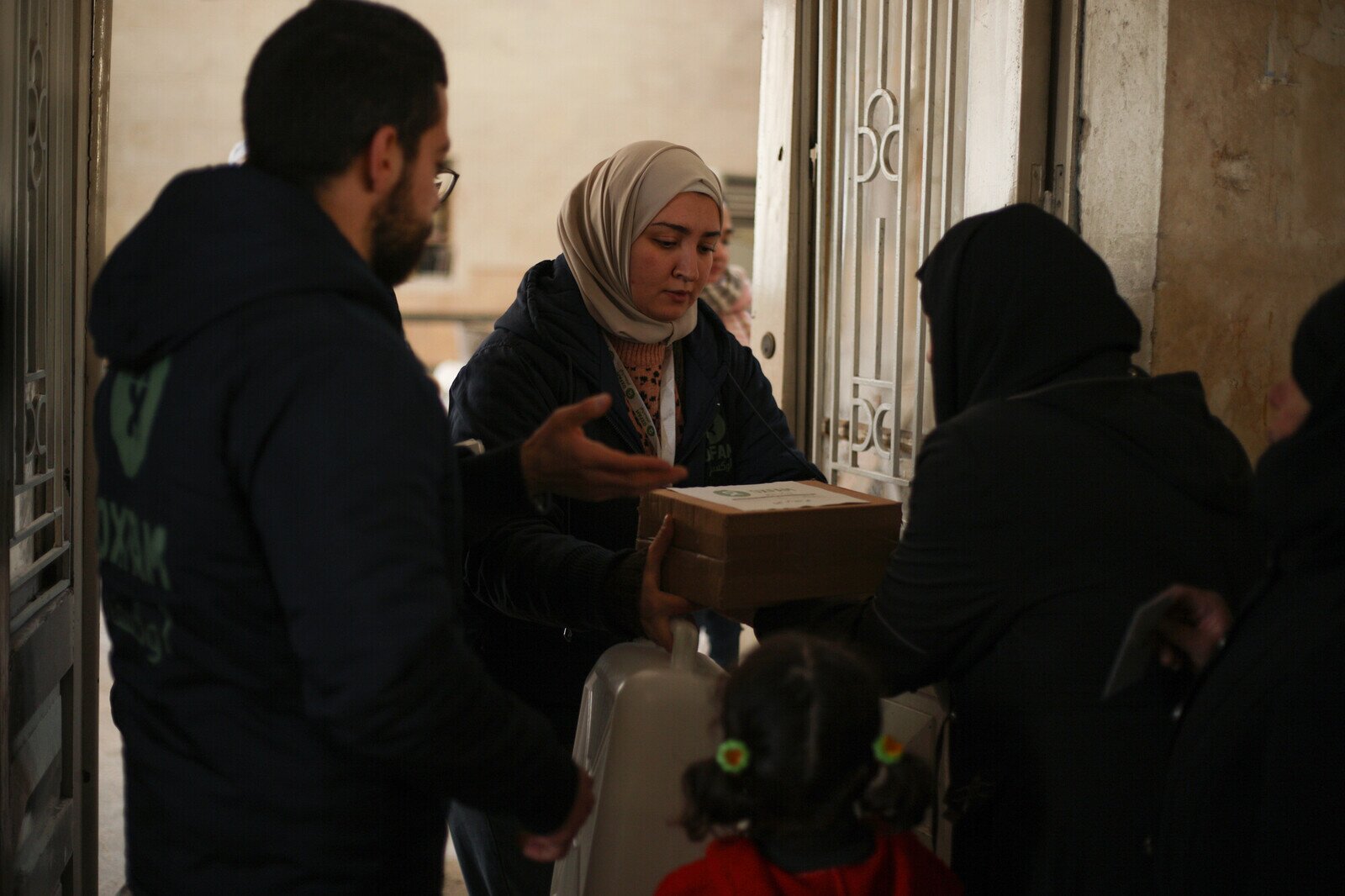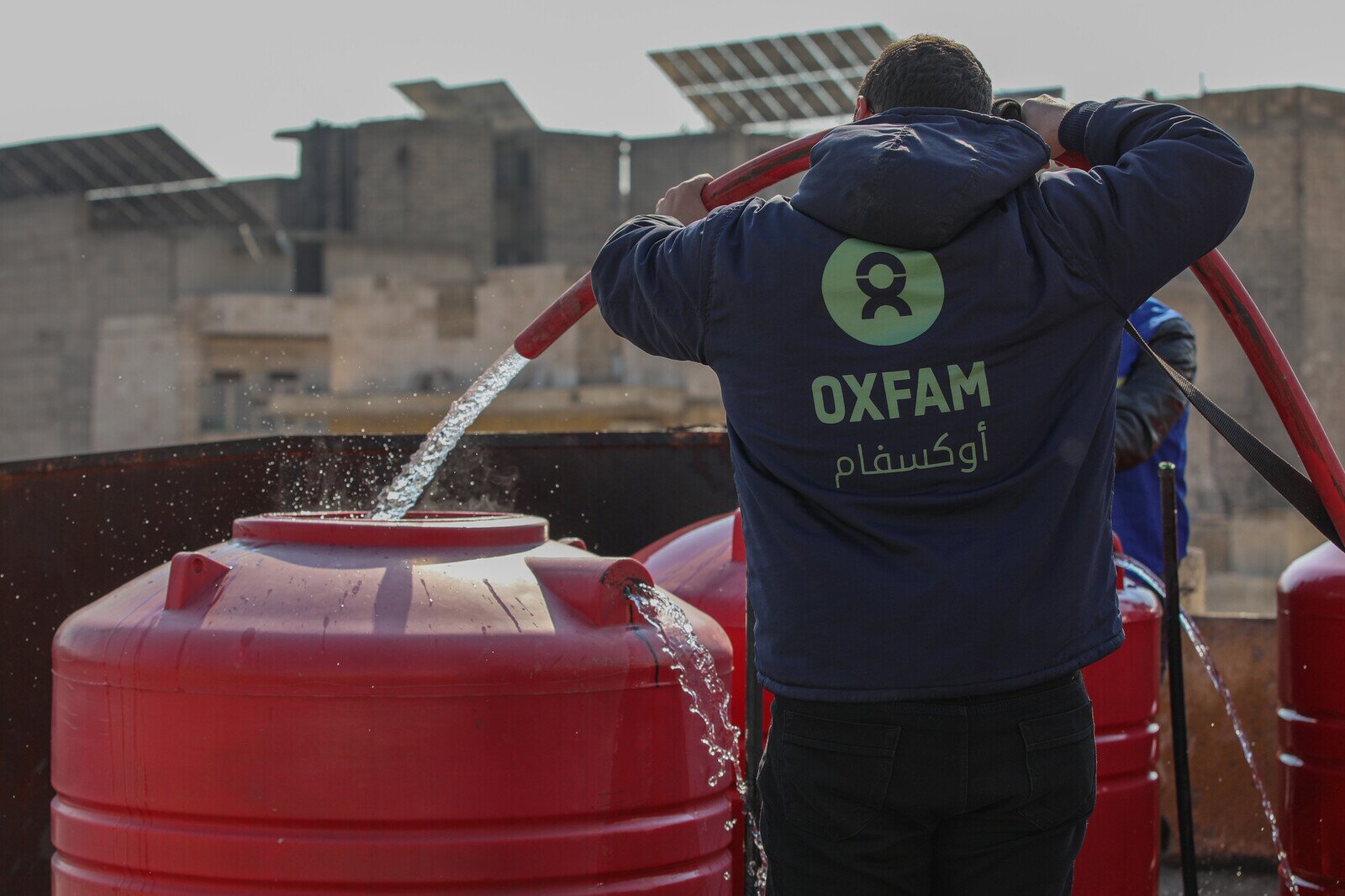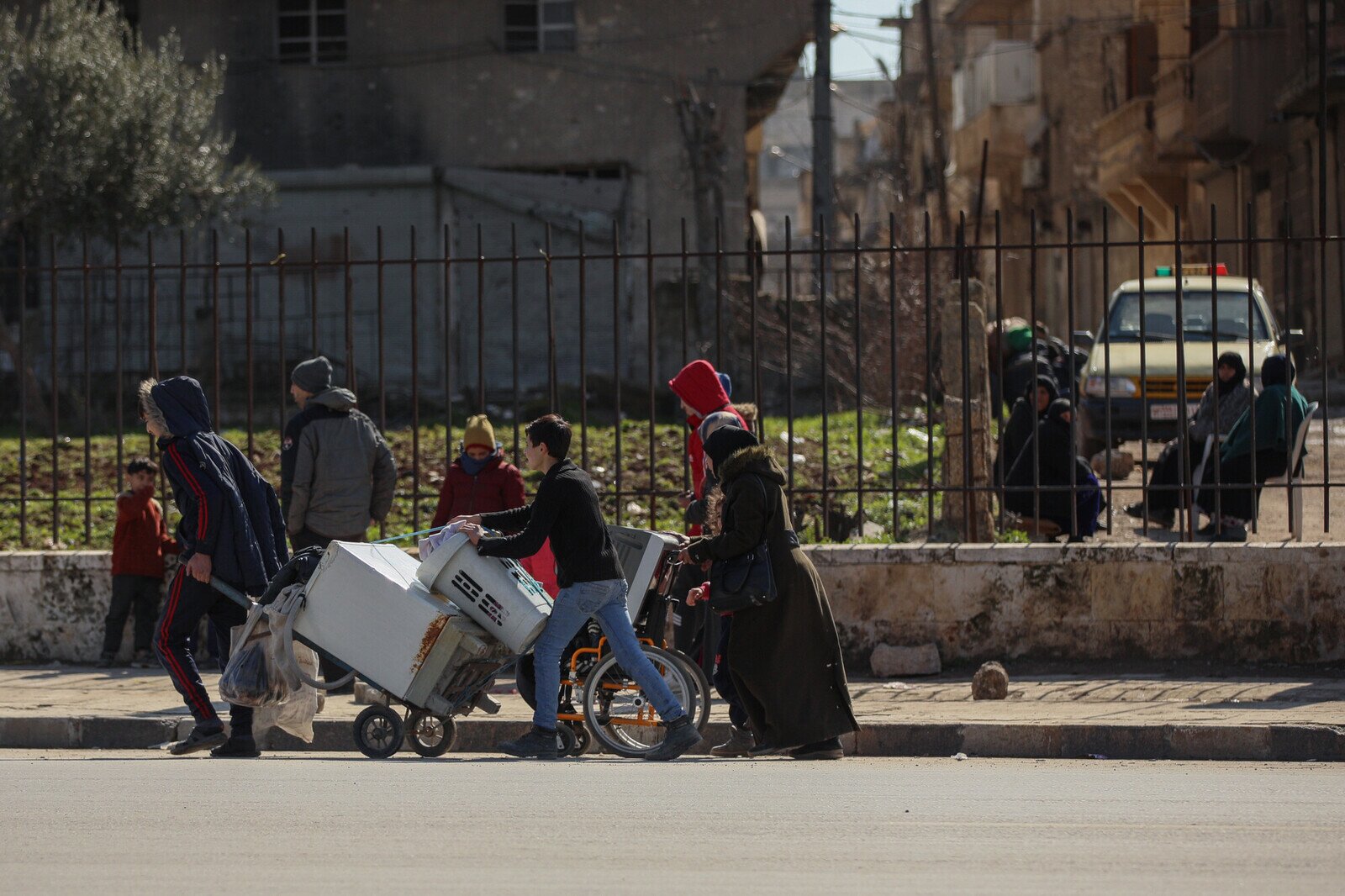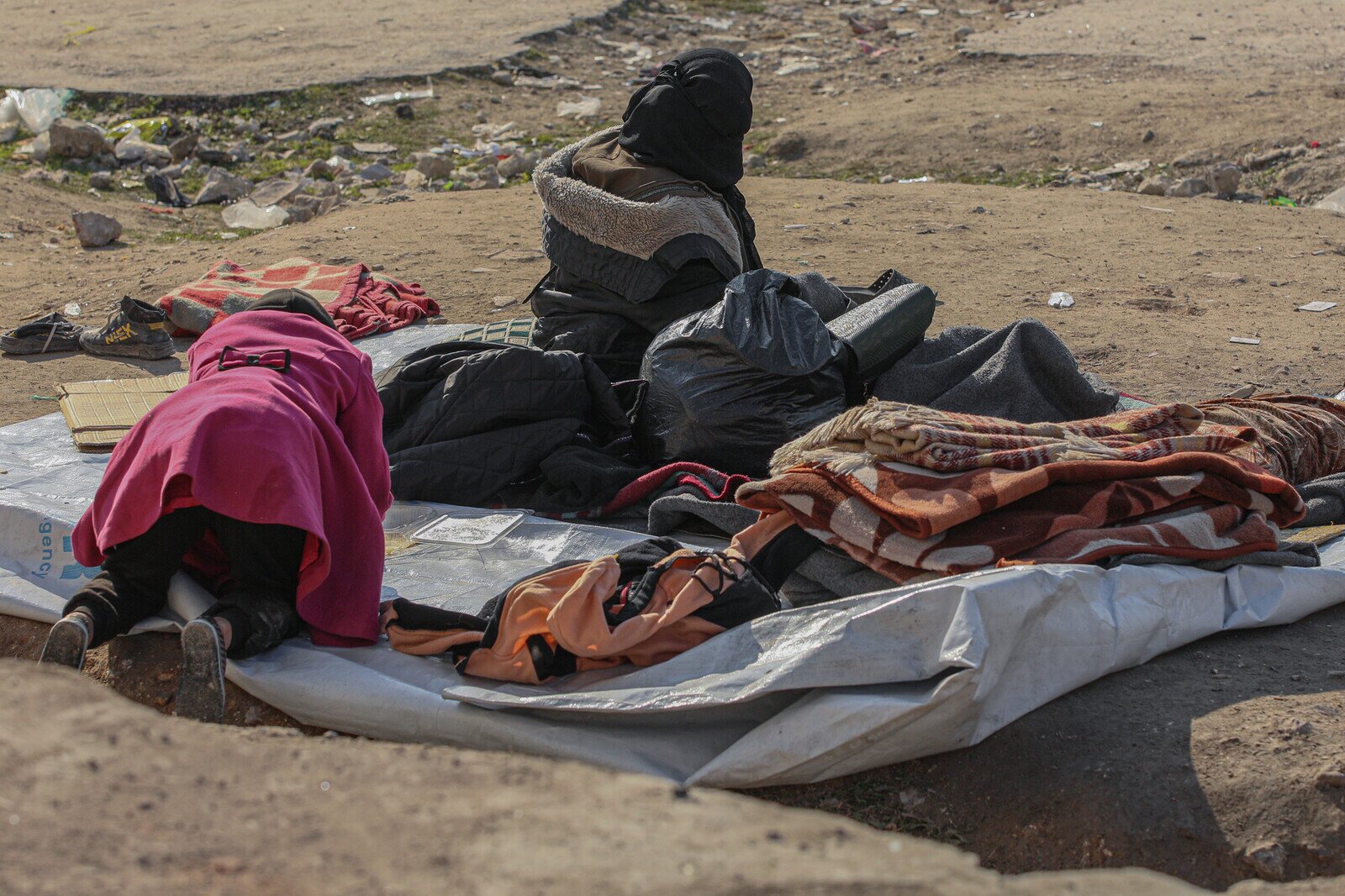Updated 06 February 2024
Oxfam's Response - One Year on
A TREMBLING YEAR
On February 6, 2023, 7.8 and 7.5 magnitude earthquakes hit southern and central Turkiye (Turkey) and northern and western Syria. Across the two countries, nearly 56,000 people were killed and more than 10 million were left in urgent need of help. Over the past year since the earthquakes, Oxfam has supported over 2 million people in collective centers and communities across Türkiye and Syria, with water, sanitation, and hygiene services, food and livelihood support, and gender and protection services. We are grateful to our supporters and institutional donors for helping us to make a difference in the lives of the people we serve.
Turkiye
Over the past year, we reached 192,170 people in the most affected areas, including Gaziantep, Hatay, Adiyaman, Kahramanmaras, and Osmaniye.
So far, together with our partners, we:
Repairs of damaged water system:
- Repaired municipal water systems to help more than 80,000 people with access to clean water.
- Rehabilitated a 3,200 cubic meter water tank in the Temporary Accommodation Center, serving 28,000 people.
Disease outbreak prevention:
- Installed 1,285 toilets and customized 731 showers, and 221 toilets for people living with disabilities.
Implemented comprehensive hygiene interventions:
- Distributed 9,311 hygiene kits, 684 baby kits, 1,169 elderly kits, and 15,641 menstrual and dignity kits as well as 2,504 cash vouchers for sanitary products.
Provision of emergency food and cash subsidy for disaster-affected households:
- Provided vouchers to 400 households to cover their food and non-food needs.
- Registered 440 most vulnerable households with cash support.
- Implementation of market-focused livelihood program to help disaster-affected people to resume livelihoods: Restored the local market of Samandag in cooperation with the municipality to improve the livelihoods of 40 local tradesmen and their families.
- Kicked off the reconstruction of the heavily damaged Vakıflı Gastronomy Village (famous for its culinary and cultural heritage), to create job opportunities and trades for local women, revive local tourism, and protect the social and historical fabric of the region.
Provision of agro-livelihood inputs to resume agricultural activities:
- Provided 299 farming families with animal feed and distributed 982 seedlings to farmers.
Safety and protection:
- Distributed 4,390 summer kits, including awnings, shades, and fans to help against the heat in summer.
- Distributed 2,988 winter kits to 14,457 people in winter.
- Working with local government authorities, UN agencies, and the private sector, to establish and manage 9 Women and Children’s Centers and 3 Women’s Solidarity Centers. This ensures women’s inclusion in longer-term recovery and reconstruction processes. The centers provide psycho-social support, referral services, preschool education, childcare, and income-generation workshops. So far 1,953 people have been reached.
- Provided almost 3,500 public health, mental health, and psychosocial activities with affected populations, targeting women and children.
Syria
In Syria, we have reached 1,852,929 people with a Syrian national partner in the four impacted governorates: Aleppo, Hama, Idlib, and Latakkia. So far, together with our partners, we:
Repairs of damaged water system:
- Trucked safe water to more than 1 million people in shelters.
- Cleaned water tanks in collective shelters, serving more than 24,000 people.
- Installed communal water tanks and provided clean water daily to enable 38,916 people with access to clean water.
- Rehabilitated water facilities in schools and collective shelters, reaching 19,259 people.
Disease outbreak prevention:
- Assigned 30 trained latrine attendants in shelters to manage the cleaning process and provided cleaning kits for 94,124 people to enable them access to safe and hygienic latrines.
- Distributed garbage bins in shelters to help 113,356 people to manage solid waste.
Implemented comprehensive hygiene interventions:
- Distributed essential hygiene items to 326,730 people and personal hygiene items in schools to 11,837 students.
- Trained 63 hygiene volunteer promoters to provide information on communicable disease prevention for 98,366 people.
Provision of emergency food and cash subsidy for disaster-affected households:
- Provided cash assistance to 21,341 of the most vulnerable people in Aleppo.
- Repaired and upgraded two bakeries to provide bread for 95,000 people; Another 5 bakeries are being rehabilitated.
- Supplied dry yeast to bakeries in Aleppo to bake bread.
Safety and protection:
- Distributed 17,927 dignity kits to women and girls; distributed menstrual pads and soap to the students.
- Provided 494 blankets, 10,021 winter kits, and solar lights to people in rural Aleppo and Idlib to sustain them through the winter.
- Provided individual protection assistance to 90 people living with physical or mental disabilities and survivors of gender-based violence.
- Reached 480 adolescent girls in 12 schools in Aleppo, Lattakia, and Hama with information on menstrual hygiene and gender equality.
- Improved referral and information systems to ensure that survivors of gender-based violence have access to the available services and resources.
A year after the earthquake, our operations have shifted from providing live-saving aid to a longer-term recovery plan that seeks to improve and restore lives in the communities affected by the disaster. Moving forward, we will:
- Continue the rehabilitation of facilities and services in Syria; support people’s livelihood with the assistance they need to survive these difficult times; restore their dignity after a year of hardship and trauma.
- Establish dialogue channels with authorities and, aid groups to help the disaster-affected people especially women to have a voice in planning and decisions on the ongoing reconstruction process in Türkiye.
- Map water needs of approximately 20 villages in Adiyaman to develop the service plan in 2024.
- Continue providing cash and materials to women's cooperatives, entrepreneurs, and farmers in Türkiye’s rural areas.
- Continue to work on the distribution of winter clothes, with 3,433 winter clothes kits scheduled to be distributed in 2024 in Gaziantep and Hatay, targeting 15,000 individuals.
- Work with the Women's Coalition in Türkiye to distribute 3,000 hygiene kits in Adıyaman.
Updated 23 May 2023
Oxfam's Response - 3 Months On
Oxfam, together with our partners in Turkiye (Turkey) and Syria, is working to reach nearly 2 million people – 10 per cent of the population affected by the quake – with aid and support so that they can rebuild their lives.
Turkiye
Over the past three months, we reached 24,053 people in the most affected areas, including Gaziantep, Hatay, Sanliurfa, Maras and Osmaniye.
So far, together with our partners, we:
- Installed 140 toilets, 59 showers and 16 tapstands in Maras.
- A second batch of 750 toilets and 175 showers is being prepared for deployment to Maras, Hatay and Gaziantep.
- Offering 750 meals per day in Gaziantep, Hatay and Sanliurfa.
- This is being done through the community kitchens we helped establish, which are staffed by women affected by the earthquake.
- Distributed 2,200 hygiene kits and 930 menstrual pads in Hatay.
- Hygiene kits include items like bleach, toothbrushes and toothpaste, soap, shampoo and towels.
It will be months, if not years, before these communities can rebuild their lives. That’s why we’re not only looking at immediate rescue efforts, but also long-term needs as this disaster will have deep impact on people’s lives and livelihoods.
Syria
In Syria, we have reached 250,133 people with a Syrian national partner in the four impacted governorates: Aleppo, Hama, Idlib and Latakia. So far, we have:
- Trucked safe drinking water to 38,731 people
- Installed 40 water tanks, benefiting 6,367 people
- Repaired damaged water systems to ensure 151,532 people have access to clean and safe water in their households
- Distributed 3,728 hygiene and latrine cleaning kits in shelters to 16,919 people
- Conducted solid waste management activities in shelters
- Reached 30,526 people by fixing water taps and toilets, and cleaning sewage in shelters
- Supported safety checks for 6,200 buildings
Moving forward, we will:
DistributeAquatabs and chlorine sachets to prevent against cholera outbreaks.
Distribute hygiene and dignity kits, including menstrual pads, flashlights and other supplies to meet the needs of women and girls.
Distribute cash to help people purchase what they need with dignity.
Rehabilitate damaged bakeries and deliver dry yeast to bakeries.
Carry out basic repairs on water infrastructure in Aleppo, Latakia and Hama.
Özge Sağaltici, who survived the earthquake and works for Oxfam KEDV, said: ‘I’m very grateful for the support that’s been given so far but the earthquakes have caused huge damage. It won’t be easy to fix. We will need more human power, and lots of financial support to help us rebuild our lives.’
Please donate now to support Oxfam's emergency relief work in Turkiye and Syria affected by the earthquake.
Situation
In the early hours of 6 February, a 7.8 magnitude earthquake hit Turkiye and northern Syria – one of the strongest in nearly 100 years. A second earthquake measuring magnitude 7.5 rocked the region.
The scale of death and devastation is unimaginable and will only continue to rise. Some places have become mass graveyards. Survivors need a roof over their head and food, water, toilets and showers.
If we want to prevent further disasters, we need to support these survivors now. Otherwise, we will have to deal with diseases, and people dying of cold and hunger, which is all preventable.

